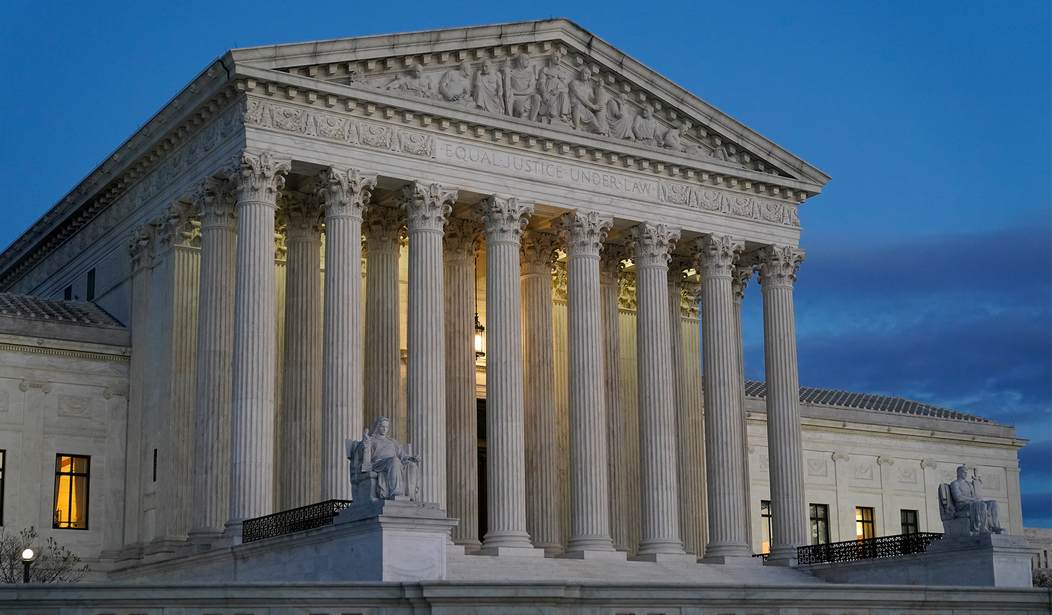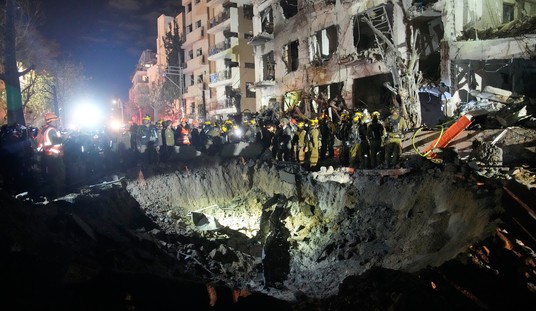The Trump administration is cutting to the chase on that case in which several illegal aliens (whose immigration cases had already been litigated) were removed to South Sudan. Following a slew of orders issued by Judge Brian Murphy in the U.S. District Court for the District of Massachusetts and a denial of a stay pending appeal by the 1st Circuit Court of Appeals, the administration is taking its case directly to the Supreme Court with an application for stay filed on Tuesday.
So...how did we get here?
Once again, I'll lean on my colleague Ward Clark to set the stage:
To begin at the beginning: On Tuesday, a federal district judge, Brian E. Murphy, ordered the Department of Homeland Security to maintain custody of any illegal aliens being deported to a third-party nation — that is, a nation that is neither the United States nor the home country of the persons in question. Of particular note were eight illegal aliens from Vietnam, Mexico, Cuba, Myanmar, and other places. All have been convicted of serious crimes and were to be deported to detention in South Sudan. Deportation flights for these illegals have, for the moment, halted.
...
Note that the eight men who are the specific subjects named here are not just illegal aliens. They have committed heinous crimes, far beyond just the fact of their illegal entry. These monsters have preyed on American citizens, and the Trump administration is correct to seek their removal, but in several of these cases, the criminals' home nation won't accept their return. South Sudan, granted, is an eyebrow-raising choice of destinations, but as of this writing, it's unclear if that was the final destination for these criminals.
READ MORE: Biden-Appointed Judge Blocks Deportation of 8 Vicious Criminals to South Sudan
Following that order entered last Tuesday, the court conducted another hearing last Wednesday morning, after which Judge Murphy found that the Trump administration had violated his previous order(s) by sending the illegal alien criminals (who already had valid removal orders) to a third country (South Sudan) "by failing to provide six non-citizen class members a 'meaningful opportunity' to assert claims for protection under the Convention Against Torture before initiating removal to a third country."
Murphy then ordered an extraordinary remedy for that, which included for each of the aliens:
- a reasonable fear interview in private, with the opportunity for the individual to have counsel of their choosing present during the interview, either in-person or remotely
- access to counsel that is commensurate with the access that they would have received had these procedures occurred within the United States prior to their deportation
- the name and telephone number of class counsel, as well as access to a phone, interpreter, and technology for the confidential transfer of documents
- no fewer than 72-hours’ notice of the scheduled time for each reasonable fear interview
- meaningful opportunity, and a minimum of 15 days, to seek to move to reopen immigration proceedings to challenge the potential third-country removal, even if they don't meet the requisite standard to establish "reasonable fear," during which time the individual must remain within the custody or control of DHS, and must be afforded access to counsel
- status reports every seven days as to all six individuals
The administration filed a motion for reconsideration following that, including a declaration from Secretary of State Marco Rubio that set forth how badly the judge's rulings were interfering with the administration's ability to conduct foreign affairs, but Murphy was having none of it, entering another astounding order. Our colleague Jeff Charles has a rundown on that over at Townhall:
Murphy accused DHS of manufacturing “chaos” in its efforts to subvert the court’s order. “Defendants have mischaracterized this Court’s order, while at the same time manufacturing the very chaos they decry.”
He further alleged that DHS was trying to obfuscate the matter. “Defendants’ argument might be stronger if this were at all close… From this course of conduct, it is hard to come to any conclusion other than that Defendants invite a lack of clarity as a means of evasion.”
Our friend Shipwreckedcrew has a solid explainer here as to what the third-country removal process involves (and why there might be an argument that these aliens were entitled to more than they got here, even if Murphy's orders exceed his jurisdiction).
After the removal hearing, which normally ends up with removal to your country of birth or where you lived last prior to coming into the US, the deportee can file for 3 things -- "Withholding to that country, CAT (usually same country), and asylum.
— Shipwreckedcrew (@shipwreckedcrew) May 28, 2025
Asylum is remain in US as… https://t.co/nIQ36NRyiw
The key issue here, though, is that jurisdiction — as in whether Murphy even has it. And now, it appears we'll be waiting to see how the Supreme Court comes down on that, as the issue is squarely presented to them with this application. As the case arises out of the 1st Circuit, it was assigned to Justice Ketanji Brown Jackson, and she has requested a response from the plaintiffs/petitioners by June 4.
We will, of course, continue to follow the case and provide updates as warranted.
Editor's Note: Partisan federal judges are hijacking President Trump's agenda and insulting the will of the people
Help us expose out-of-control judges dead set on halting President Trump's mandate for change. Join RedState VIP and use promo code FIGHT to get 60% off your membership.













Join the conversation as a VIP Member